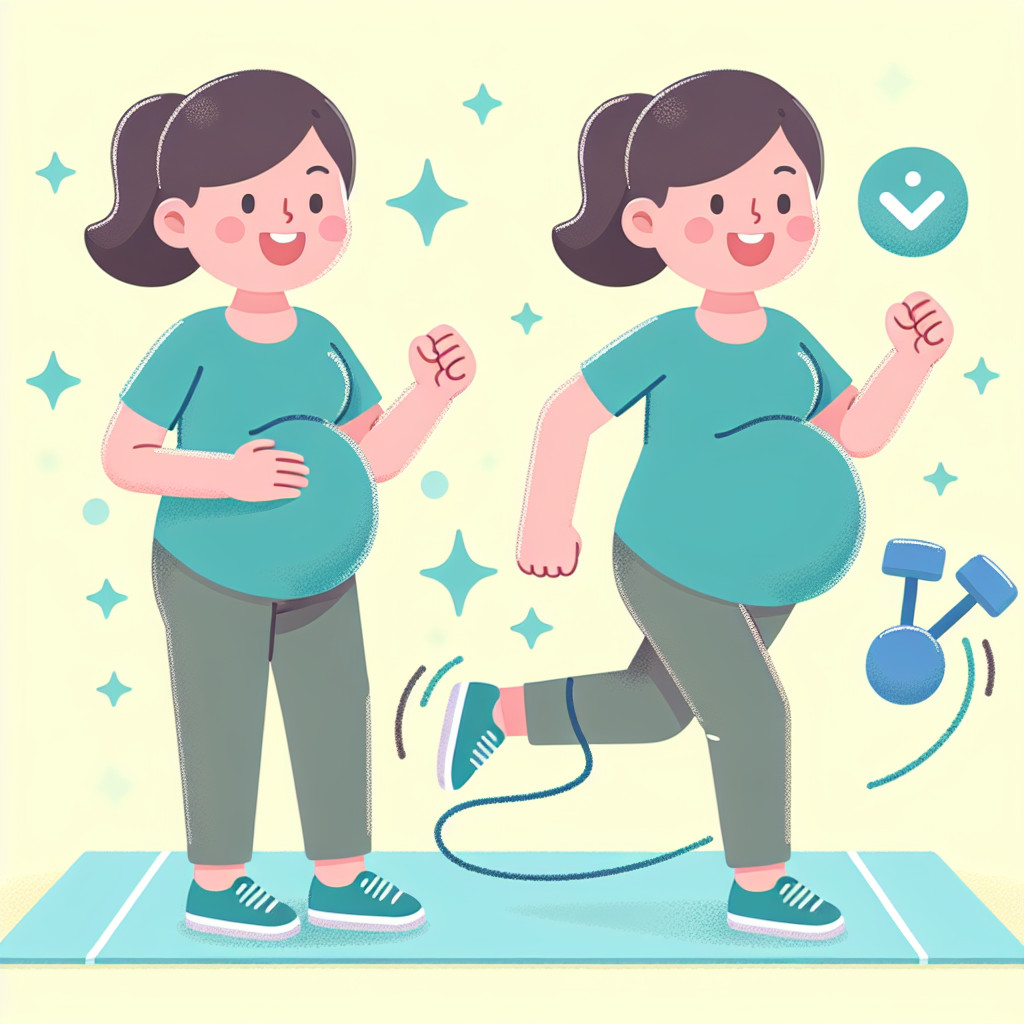When you’re expecting, your body goes through a whirlwind of changes, and fatigue is a frequent visitor that can make you want to curl up and nap at a moment’s notice. But here’s the kicker—staying active can actually give your energy levels a massive boost. Exercise during pregnancy isn’t just a great way to keep your spirits high and your body tuned; it’s a downright necessity for some to manage tiredness and keep those pesky nighttime leg cramps at bay. Not to mention, it’s pretty phenomenal at improving your circulation. However, timing is everything. You’ll want to lace up those sneakers at the right time because working out too close to bedtime can send your adrenaline levels through the roof, making it harder to catch those much-needed Zzzs.
Benefits of Regular Exercise for Expectant Mothers
- Combatting Fatigue with Physical Activity: Not only can regular exercise give you a burst of energy, but it can also help you sleep more soundly—provided you don’t do it too close to bedtime.
- Improved Circulation and Reduced Leg Cramps: Through consistent low-impact workouts, you can keep your blood flowing smoothly, which often lessens the likelihood of experiencing leg cramps when the moon is up.
- Additional Physical and Emotional Benefits: From boosting your mood with endorphins to maintaining a healthy weight and strengthening your body for childbirth, the perks of prenatal workouts are a long list worth considering.

Creating an Effective Pregnancy Fitness Routine
Getting started with a pregnancy workout plan? You’ll want to scout out exercises that are gentle yet effective. Think swimming, prenatal yoga, or a brisk walk in the park. Always build in time for a warm-up and cool-down, and keep an eye on your heart rate and breathing. The goal is to stay active, not set any personal records. Remember, this isn’t the time for boot camp-style intensity. And if your body’s waving a red flag, give yourself permission to take a breather and adjust your routine as needed. Your changing body calls for a flexible workout plan, just like your maternity wear.
Timing Your Workouts for Optimal Energy
Ever considered yourself an evening person? Well, during pregnancy, you might want to rethink that strategy. To dodge a wide-eyed night, aim to complete your exercise earlier in the day. This way, your body has plenty of time to wind down come evening. Exercising too late can kick your adrenaline into high gear, and while that’s great for daytime pep, it’s not ideal when you’re trying to drift off to dreamland.
Incorporating Rest and Recovery in Your Fitness Regimen
One day you’re full of pep, the next, you can barely peel yourself off the couch—it’s a normal part of the pregnancy roller coaster. On those less-peppy days, it’s crucial to dial back the intensity or even take a day off. And when you’re not working out, consider other relaxation methods like prenatal massages or a quiet session of meditation. It’s all about hitting that sweet spot between staying active and giving your body the rest it craves.
Nutrition Tips to Support Pregnancy Fitness and Reduce Fatigue
- Fueling Your Body for Exercise and Energy: Think of your food intake as the fuel your body needs to maintain energy levels. During pregnancy, focus on wholesome, nutrient-dense foods that’ll give you and your baby the required nourishment, especially on workout days.
- Hydration and Its Role in Managing Fatigue: Keeping hydrated is like oiling the joints of your body—it keeps everything running smoothly, and dehydration can be a sneaky energy thief. So, sip on water throughout the day, particularly before, during, and after workouts.
Addressing Common Concerns and Safety Tips
When you’re pregnant, it’s imperative to know your limits. If you’re feeling light-headed, experiencing any pain, or just sense something’s off, take it down a notch or stop and rest. It’s always a smart move to sync up with your healthcare provider before starting any new exercise to ensure that you have a green light based on your individual health and pregnancy circumstances. Remember, every pregnancy is unique, and playing it safe is the name of the game.
Real-Life Stories and Testimonials
Nothing beats hearing tales straight from the horse’s mouth—other expectant moms who have been there, done that with pregnancy fitness. Witnessing their stories of how staying active kept their energy up and made their pregnancy journey brighter can be incredibly motivating. From tackling pregnancy blues with a sunny morning walk to combating restlessness with some gentle stretching, their real-life experiences can offer both inspiration and solidarity.
Frequently Asked Questions About Pregnancy Fitness and Fatigue
- How much exercise should I aim for during pregnancy?
- Generally, you want to aim for at least 150 minutes of moderate-intensity exercise each week. However, it’s crucial to check in with your healthcare provider to personalize your plan.
- What are some signs that I should stop exercising?
- Listen to your body—if you’re feeling dizzy, short of breath, or have any vaginal bleeding or fluid leaking, it’s time to hit the pause button and check with your doctor.
- Can exercise during pregnancy reduce the risk of complications?
- Yes, staying active can lower the risk of pregnancy complications like gestational diabetes and preeclampsia—just another compelling reason to keep moving!
- Is it safe to start working out if I wasn’t active before pregnancy?
- Absolutely! Start slow, think low-impact, and build up your endurance. Your body will thank you for it, but always get that thumbs-up from your healthcare provider first.
